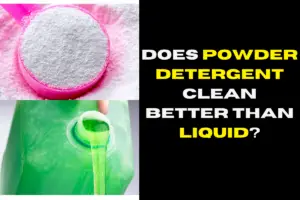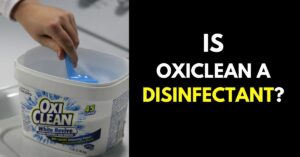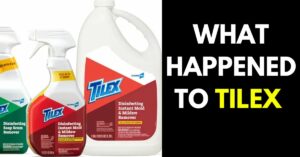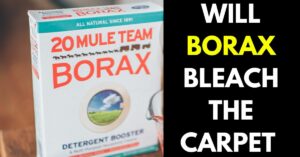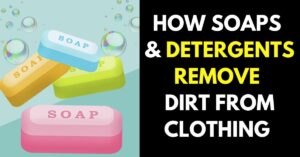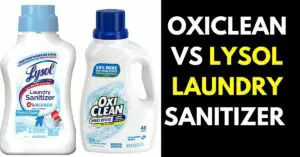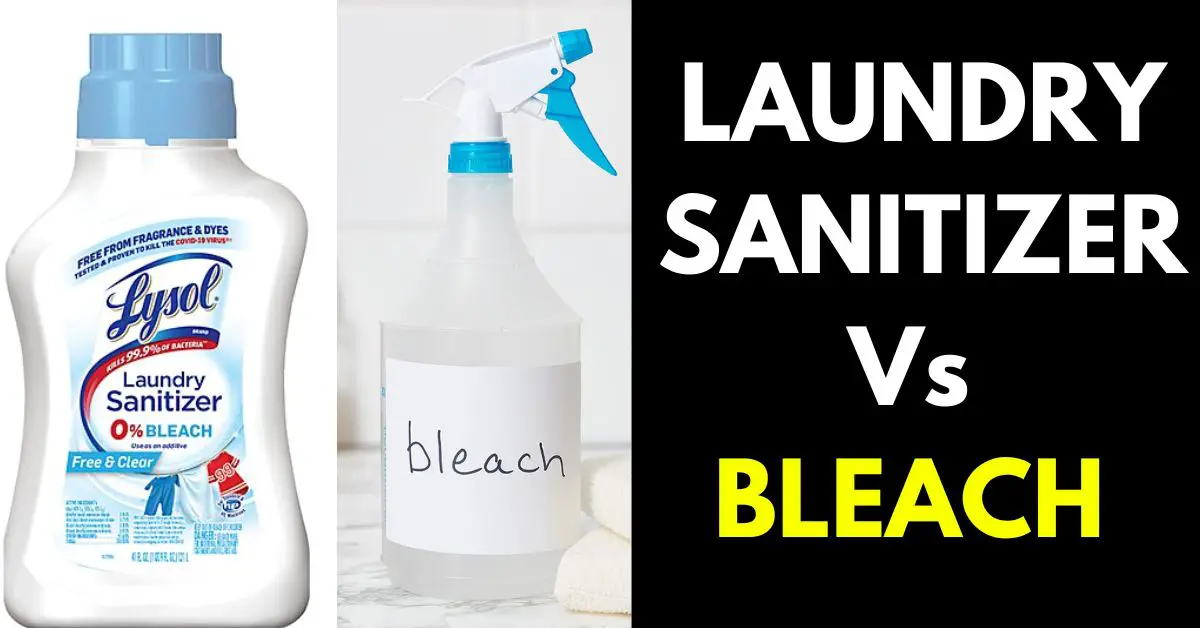
Doing laundry is a task that most of us do regularly, but with the COVID-19 pandemic, we’ve become more conscious of the importance of cleanliness and hygiene. It’s now more important than ever to ensure that our clothes and linens are sanitized properly. This has led many people to wonder whether their regular laundry detergent is enough to kill germs, or whether they need to use a laundry sanitizer or bleach. Let’s take a closer look at these two products, how they work, and which one is best for different laundry needs.
By the end of this comparison, you will have a better understanding of the differences between laundry sanitizers and bleach and be able to make an informed decision on which one to use for your laundry needs. So, let’s dive in;
What Are Laundry Sanitizers
Laundry sanitizers are a relatively new product that has become increasingly popular during the pandemic. They are designed to kill germs and bacteria, leaving clothes clean and fresh.
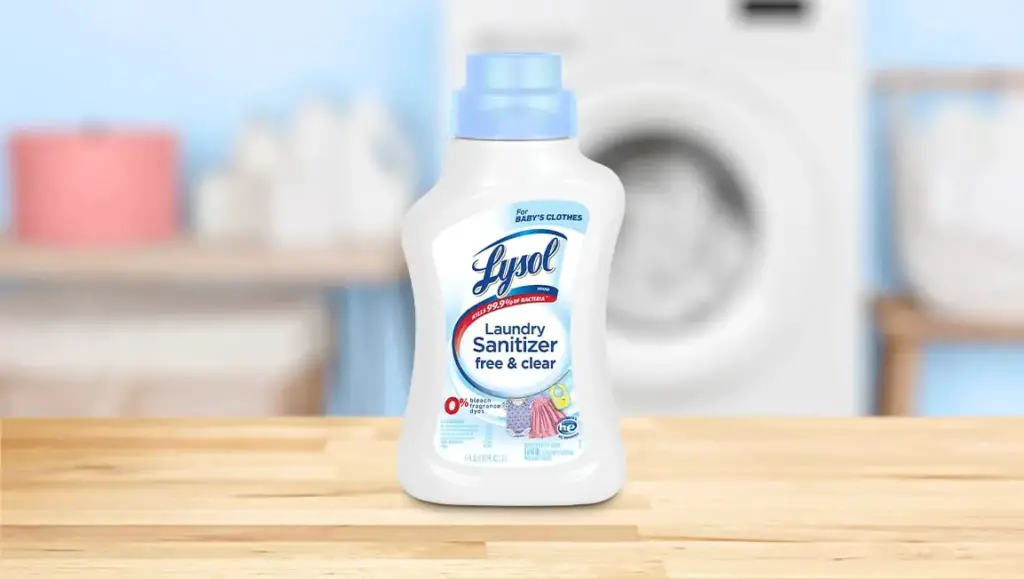
There are different types of laundry sanitizers, including those that are added to the washing machine and those that are added to the rinse cycle.
One advantage of laundry sanitizers is that they are safe to use on all types of fabrics. However, they can be more expensive than regular laundry detergent.
What is Bleach
Bleach is a popular product that has been used for many years to clean and disinfect clothes. It is effective in killing germs and bacteria and removing tough stains.
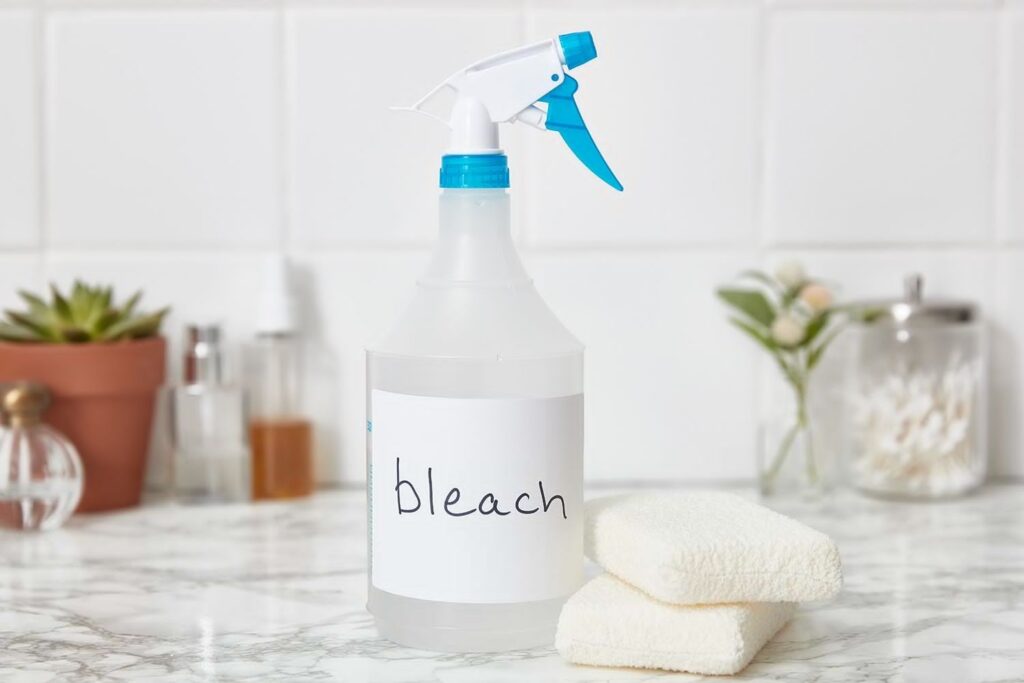
There are different types of bleach, including chlorine bleach and oxygen bleach.
One disadvantage of bleach is that it can damage fabrics and colors, making them fade over time. Use bleach in the correct concentration, as using too much can cause damage to clothes and the washing machine.
Is Laundry Sanitizer as Good as Bleach?
Laundry sanitizer and bleach are both effective at killing bacteria, viruses, and fungi in the laundry. However, bleach is a strong disinfectant and can kill a wider range of microorganisms compared to laundry sanitizer.
Laundry Sanitizer Vs Bleach: Comparison Table
| Features | Laundry Sanitizer | Bleach |
|---|---|---|
| Kill germs | Yes | Yes |
| Fight bacteria | Effective | Effective |
| Stains removal | Not effective | Effective |
| Gentler on fabrics | Gentler | Not |
| Price | Higher | Cheaper |
Detailed Comparison between Laundry Sanitizers and Bleach
When it comes to killing germs and bacteria, both laundry sanitizers and bleach are effective. However, bleach is more effective in removing tough stains and can be used in higher concentrations for deeper cleaning.
Laundry sanitizers are gentler on fabrics and colors and can be used safely on all types of fabrics. In terms of cost, laundry sanitizers can be more expensive than regular laundry detergent, while bleach is generally cheaper.
Laundry Sanitizer Vs Bleach: When to use Laundry Sanitizers and Bleach
Laundry sanitizers are recommended for use in specific situations, such as when washing clothes that have come into contact with someone who is sick, or when washing baby clothes.
Bleach comes in situations where there is a high risk of infection, such as when washing hospital bedding or when dealing with a mold infestation.
Can You Sanitize Laundry Without Bleach?
Yes, it is possible to sanitize laundry without using bleach. While bleach is a common disinfectant used in laundry, there are other options available that can be just as effective.
One option is to use white vinegar, which can act as a disinfectant and a deodorizer. Adding a half cup of white vinegar to the rinse cycle of your washing machine can help to kill bacteria and neutralize odors.
Another option is to use hydrogen peroxide, which is a natural alternative to bleach. Adding a cup of hydrogen peroxide to the wash cycle can help to kill bacteria and viruses.
Is Laundry Sanitizer Really Necessary?
There are certain situations where using a laundry sanitizer may be beneficial.
For example, if you or someone in your household is immunocompromised, has a weakened immune system, or is at higher risk of infection, using a laundry sanitizer may help to reduce the risk of illness.
Similarly, if someone in your household has been sick with a contagious illness, using a laundry sanitizer can help to kill any germs that may be present on their clothes or linens.
Is Laundry Sanitizer Effective?
Laundry sanitizers can be effective in reducing the number of bacteria and germs in your laundry. They work by killing or inhibiting the growth of bacteria, viruses, and fungi that may be present on your clothes or linen.
How to Sanitize Laundry Without Bleach
There are several ways to sanitize laundry without using bleach:
- Hot water: Wash your clothes in hot water, which can help kill most germs and bacteria. Make sure to check the care label of your clothes to ensure they can handle hot water.
- Vinegar: Add a cup of white vinegar to the rinse cycle of your washing machine to help sanitize your clothes. Vinegar is a natural disinfectant that can kill germs and remove odors.
- Essential oils: Add a few drops of essential oils like tea tree oil, eucalyptus oil, or lavender oil to your laundry. These oils have antimicrobial properties and can help kill germs.
- Hydrogen peroxide: Add half a cup of hydrogen peroxide to your wash cycle to help sanitize your clothes. Hydrogen peroxide is a natural disinfectant that can kill germs and remove stains.
- Baking soda: Add half a cup of baking soda to your wash cycle to help sanitize your clothes. Baking soda is a natural deodorizer that can help eliminate odors and kill germs.
Final Thoughts
Both laundry sanitizers and bleach have their advantages and disadvantages. Laundry sanitizers are gentle on fabrics and colors, while bleach is more effective in removing tough stains. When it comes to killing germs and bacteria, both products are effective, but laundry sanitizers may be more suitable for daily use, while bleach is recommended for specific situations.
It is important to follow the instructions on the label and to use these products safely to ensure that clothes are clean, fresh, and free from germs and bacteria.

